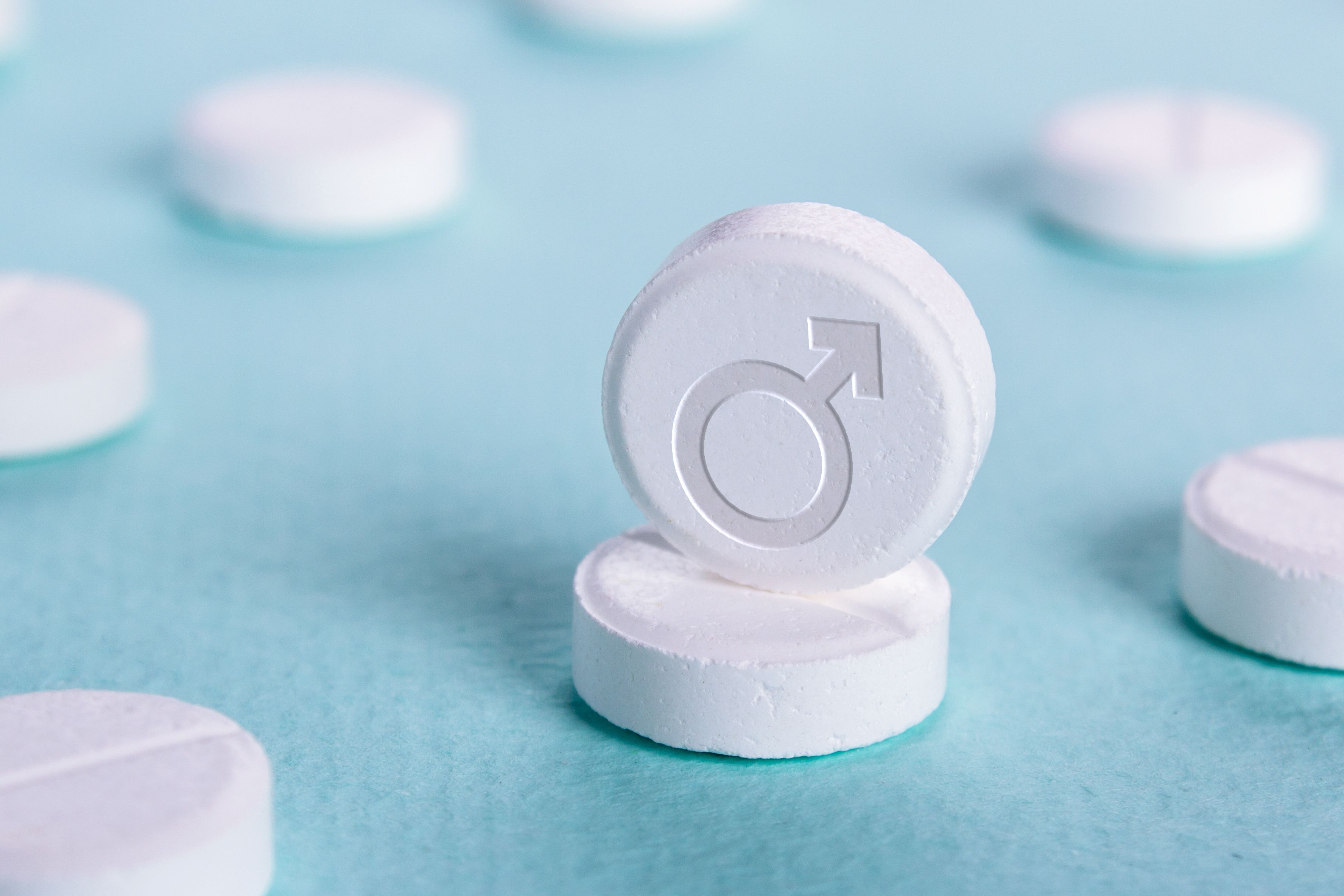- Center on Health Equity & Access
- Clinical
- Health Care Cost
- Health Care Delivery
- Insurance
- Policy
- Technology
- Value-Based Care
Progress in Male Contraception: An Unmet Need in an Epidemic of Unplanned Pregnancy
Nearly 50% of pregnancies worldwide are unplanned, leading to significant health, economic, and environmental consequences, Stephanie Page, MD, PhD, explains in her presentation at the American Society for Reproductive Medicine 2023 Scientific Congress & Expo.
Tablet for Potency | Image Credit: adragan - stock.adobe.com

Programs dedicated to male reproduction and the development of effective, reversible hormonal contraceptives are potential game changers in family planning, explained Stephanie Page, MD, PhD, University of Washington, in a presentation at the American Society for Reproductive Medicine 2023 Scientific Congress & Expo, held in New Orleans, Louisiana.
Page's research centers around hormonal methods that target spermatogenesis, or the process of sperm production. She emphasized the urgent need for diverse contraceptive options, especially for men, considering the alarming rates of unplanned pregnancies globally.
Nearly 50% of pregnancies worldwide are unplanned, leading to significant health, economic, and environmental consequences. Page explained that engaging men in contraception could be a transformative step.
“We have an epidemic of unplanned pregnancy," she said. "And despite the fact that we have a number of options for female contraception, we continue to have a very heavy burden of unplanned pregnancy with almost 50% of pregnancies globally, being unplanned, and about half of those ending in abortion.”
Historically, the field of male contraception has faced challenges due to the sheer volume of sperm produced daily by men. However, recent developments have paved the way for innovative solutions. One approach discussed was the use of hormonal methods, similar to those used in female contraception.
By introducing hormones that interrupt natural feedback loops, investigators have successfully blocked the production of sperm. These hormonal methods, often combining testosterone and progestin, have shown promising results in clinical trials, with nearly 90% of men achieving contraceptive efficacy.
One of the most exciting developments presented was a transdermal gel, offering a user-controlled, convenient, and effective male contraceptive option. Page detailed an ongoing study involving couples from multiple countries.
The gel, applied daily, has shown significant suppression of sperm production and demonstrated high efficacy. If successful, this transdermal gel could revolutionize male contraception, offering a viable alternative to traditional methods.
Additionally, Page discussed the challenges faced in developing a male contraceptive pill. Unlike female contraceptives, oral delivery of testosterone has proven to be challenging. However, investigators have been working on dual-action androgens—compounds that combine both testosterone and progestin activity. These compounds show promise in providing an effective, oral, and user-friendly option for men.
The presentation also highlighted the importance of trust and acceptability among users. Surveys conducted across different countries indicated a high willingness among men to adopt male contraceptives, with a significant number of women expressing trust in their partners to use these methods effectively. This trust factor could pave the way for increased acceptance and usage of male contraceptives in the future.
"While contraception will never replace access to safe abortion, which is critical for female health, we all know that contraceptives are the best defense against the need for an abortion,” Page stated. “And I think one of the things that's been really fun in our clinical trials, sort of a bright note post-Dobbs, has been that we've had men coming in volunteering to be in our studies, really wanting to move the needle forward in the post-Roe era."
